เนื้อหา
IVF Gender Selection Thailand - สร้างครอบครัวในฝันของคุณ
สำหรับคู่รักที่ใฝ่ฝันที่จะสร้างสมดุลในครอบครัวหรือหลีกเลี่ยงภาวะทางพันธุกรรมบางอย่าง การเลือกเพศของบุตรจึงเป็นไปได้ด้วยเทคโนโลยีการเจริญพันธุ์ขั้นสูง ประเทศไทยได้กลายเป็นจุดหมายปลายทางชั้นนำสำหรับการรักษาภาวะมีบุตรยาก ซึ่งรวมถึง IVF Gender Selection Thailand ด้วยจำนวนผู้ป่วยต่างชาติที่เพิ่มขึ้นอย่างต่อเนื่องที่ต้องการวิธีการรักษาภาวะมีบุตรยากที่ทันสมัย ภาคการแพทย์ของประเทศไทยจึงขยายตัวอย่างต่อเนื่องเพื่อตอบสนองความต้องการที่หลากหลายเหล่านี้ ด้วยความมุ่งมั่นอย่างแรงกล้าในการเพิ่มการเข้าถึงบริการด้านสุขภาพและคุณภาพบริการ ประเทศไทยกำลังก้าวหน้าอย่างมากในการนำเสนอวิธีการรักษาภาวะมีบุตรยากที่ทันสมัย การมีขั้นตอน IVF Gender Selection Thailand ให้เลือกเพศของทารกได้นั้น ได้สร้างความหวังใหม่ให้กับพ่อแม่ผู้ใฝ่ฝันหลายคน
มาเจาะลึกข้อดีของการเลือกเพศในประเทศไทย มาตรฐานการรักษาพยาบาลในคลินิกรักษาผู้มีบุตรยาก และเปรียบเทียบตัวเลือกเหล่านี้กับประเทศอื่นๆ ทั่วโลก เราจะสำรวจมุมมองของผู้ป่วยและโครงสร้างพื้นฐานด้านการดูแลสุขภาพที่ครอบคลุมยิ่งขึ้น มาร่วมค้นพบข้อมูลเพิ่มเติมเกี่ยวกับการทำเด็กหลอดแก้ว (IVF) ด้วยการเลือกเพศในประเทศไทย พร้อมแบ่งปันข้อมูลเชิงลึกอันมีค่าเกี่ยวกับค่าใช้จ่ายที่อาจเกิดขึ้น คลินิกชั้นนำ และคำรับรองจากผู้ป่วยจริง!
ข้อมูลสำคัญโดยย่อ
สำหรับคู่รักหลายคู่ การสร้างครอบครัวนั้นเกี่ยวข้องกับความต้องการเพศใดเพศหนึ่ง ไม่ว่าจะเป็นเพื่อความสมดุลในครอบครัวหรือเพื่อป้องกันความผิดปกติทางพันธุกรรมที่เชื่อมโยงกับเพศสภาพ การทำเด็กหลอดแก้ว (IVF) พร้อมการคัดเลือกเพศในประเทศไทยเป็นแนวทางการแพทย์ด้านการเจริญพันธุ์แนวใหม่ที่ใช้การวินิจฉัยทางพันธุกรรมก่อนการฝังตัวของตัวอ่อน (PGD) หรือการตรวจคัดกรองทางพันธุกรรมก่อนการฝังตัวของตัวอ่อน (PGS) เพื่อระบุเพศของตัวอ่อนก่อนการฝังตัว ประเทศไทยได้สร้างชื่อเสียงในฐานะจุดหมายปลายทางสำคัญสำหรับการรักษาทางการแพทย์ขั้นสูง ซึ่งเป็นแนวทางที่มีแนวโน้มดีสำหรับผู้ป่วยที่กำลังมองหาวิธีการรักษาภาวะมีบุตรยากที่ทันสมัย เช่นเดียวกับวิธีการทำเด็กหลอดแก้ว (IVF) พร้อมการคัดเลือกเพศในประเทศไทย
เวชศาสตร์การเจริญพันธุ์ได้เปลี่ยนแปลงวิธีการวางแผนครอบครัวของเรา ด้วยการนำเสนอวิธีแก้ปัญหาภาวะมีบุตรยาก และปัจจุบัน ความสามารถในการเลือกเพศของทารก IVF ประเทศไทย คู่มือฉบับสมบูรณ์นี้จะสำรวจการเลือกเพศของทารกในประเทศไทย ครอบคลุมหลักการ ประโยชน์ ค่าใช้จ่ายที่เกี่ยวข้อง และสิ่งที่ผู้ป่วยสามารถคาดหวังได้ระหว่างการรักษา
IVF พร้อมเลือกเพศคืออะไร?
การทำเด็กหลอดแก้ว (IVF) พร้อมการคัดเลือกเพศ เกี่ยวข้องกับการใช้การปฏิสนธินอกร่างกาย (IVF) ร่วมกับการตรวจทางพันธุกรรมขั้นสูง โดยเฉพาะการวินิจฉัยทางพันธุกรรมก่อนการฝังตัวของตัวอ่อน (PGD) หรือการตรวจคัดกรองทางพันธุกรรมก่อนการฝังตัวของตัวอ่อน (PGS) เพื่อระบุเพศของตัวอ่อนก่อนที่จะฝังตัวในมดลูก วิธีนี้ช่วยให้คู่สมรสสามารถเลือกเพศของทารกได้
การเลือกเพศในประเทศไทยเป็นรูปแบบหนึ่งของเทคโนโลยีช่วยการเจริญพันธุ์ ซึ่งแตกต่างจากการทำเด็กหลอดแก้ว (IVF) ทั่วไปที่มุ่งเน้นเฉพาะการตั้งครรภ์ การทำเด็กหลอดแก้วด้วยการเลือกเพศในประเทศไทยมีจุดมุ่งหมายเพื่อให้คู่สมรสมีทางเลือกในการสร้างสมดุลในครอบครัว หรือหลีกเลี่ยงความผิดปกติทางพันธุกรรมที่เกี่ยวข้องกับเพศสภาพ โดยทั่วไปแล้วขั้นตอนนี้จะเริ่มต้นด้วยกระบวนการ IVF มาตรฐาน ได้แก่ การกระตุ้นรังไข่ การเก็บไข่ และการปฏิสนธิในห้องปฏิบัติการ เมื่อตัวอ่อนเจริญเติบโต ซึ่งโดยปกติจะอยู่ในช่วงวันที่ 5 หรือ 6 (ระยะบลาสโตซิสต์) จะมีการตัดชิ้นเนื้อเซลล์บางส่วนจากตัวอ่อนแต่ละตัวอย่างระมัดระวัง
จากนั้นเซลล์ที่ตัดชิ้นเนื้อเหล่านี้จะถูกส่งไปยังห้องปฏิบัติการทางพันธุกรรมเฉพาะทางเพื่อทำ PGD/PGS การทดสอบนี้จะวิเคราะห์โครโมโซมของตัวอ่อนแต่ละตัว รวมถึงโครโมโซมเพศ (XX สำหรับเพศหญิง และ XY สำหรับเพศชาย) จากผลการทดสอบ จะมีการคัดเลือกเฉพาะตัวอ่อนที่มีเพศที่ต้องการ (และบ่อยครั้งที่พบว่าโครโมโซมปกติ) เพื่อย้ายเข้าสู่มดลูกของผู้หญิง หลังจากการย้ายตัวอ่อนแล้ว ผู้ป่วยจะได้รับการติดตามการตั้งครรภ์ เป้าหมายคือการทำให้การตั้งครรภ์สำเร็จด้วยตัวอ่อนที่มีเพศที่เลือก
เหตุใดจึงควรพิจารณาการทำเด็กหลอดแก้ว (IVF) พร้อมเลือกเพศในประเทศไทย?
ประเทศไทยกำลังก้าวขึ้นเป็นผู้นำในด้านการแพทย์ทางการสืบพันธุ์อย่างรวดเร็ว ด้วยราคาค่ารักษาที่มีการแข่งขันสูง มีสิ่งอำนวยความสะดวกทางการแพทย์ที่ทันสมัย และการมีส่วนร่วมอย่างแข็งขันในการวิจัยทางคลินิกสำหรับการบำบัดภาวะมีบุตรยาก รวมถึงการทำเด็กหลอดแก้วพร้อมการคัดเลือกเพศในประเทศไทย
ประเทศไทยได้ลงทุนอย่างมากในการวิจัยและพัฒนาทางการแพทย์ โดยเฉพาะอย่างยิ่งในด้านการรักษาภาวะมีบุตรยากขั้นสูง สำหรับผู้ป่วยที่กำลังพิจารณาเลือกเพศในประเทศไทย ประเทศไทยมีข้อได้เปรียบที่น่าสนใจหลายประการ:
ผู้สมัครเข้ารับการทำเด็กหลอดแก้ว (IVF) พร้อมเลือกเพศ
การทำเด็กหลอดแก้วพร้อมการเลือกเพศมักถูกพิจารณาสำหรับคู่รักที่ต้องการสร้างสมดุลในครอบครัวด้วยการมีลูกที่มีเพศใดเพศหนึ่ง หรือสำหรับคู่รักที่มีความเสี่ยงในการถ่ายทอดความผิดปกติทางพันธุกรรมที่เกี่ยวข้องกับเพศไปยังลูกหลาน
ผู้ป่วยบางรายอาจไม่เหมาะกับการทำเด็กหลอดแก้ว (IVF) ที่มีการคัดเลือกเพศในประเทศไทย กระบวนการคัดเลือกมีความละเอียดถี่ถ้วนและเกี่ยวข้องกับการประเมินประวัติทางการแพทย์ของคู่สมรส สถานะสุขภาพปัจจุบัน และเป้าหมายด้านการเจริญพันธุ์อย่างครอบคลุม โดยทั่วไปแล้ว ผู้สมัครที่เหมาะสม ได้แก่:
การปรึกษาหารืออย่างละเอียดกับทีมแพทย์ผู้เชี่ยวชาญในประเทศไทยจะเป็นสิ่งสำคัญในการพิจารณาความเหมาะสมของแต่ละบุคคลและแผนการรักษาที่เหมาะสมที่สุดในการเลือกเพศของทารกด้วยการทำเด็กหลอดแก้วในประเทศไทย
การทำเด็กหลอดแก้วพร้อมกระบวนการคัดเลือกเพศ
โดยทั่วไปโปรโตคอลการคัดเลือกเพศของการทำเด็กหลอดแก้ว (IVF) จะเกี่ยวข้องกับการกระตุ้นรังไข่ การเก็บไข่ การปฏิสนธิ การตรวจชิ้นเนื้อตัวอ่อนสำหรับ PGD/PGS การวิเคราะห์ทางพันธุกรรมเพื่อกำหนดเพศ และการย้ายตัวอ่อนตามเพศที่ต้องการ จากนั้นจึงทำการดูแลหลังการรักษา
การเดินทางผ่านกระบวนการ IVF พร้อมการคัดเลือกเพศในประเทศไทยเป็นกระบวนการหลายขั้นตอนที่ต้องมีการวางแผนและการประสานงานอย่างรอบคอบ ซึ่งโดยปกติจะใช้เวลาหลายสัปดาห์ ต่อไปนี้คือภาพรวมทั่วไปของโปรโตคอลการรักษา:
สำรวจแพ็กเกจ IVF พร้อมเลือกเพศและการรักษาภาวะมีบุตรยากในประเทศไทย ที่ PlacidWay ได้รวบรวมตัวเลือกราคาประหยัดจากคลินิกที่เชื่อถือได้ของเรา แพ็กเกจเหล่านี้ออกแบบมาเพื่อมอบการดูแลที่ดีเยี่ยมโดยไม่ทำให้งบประมาณของคุณบานปลาย ลองดูรายการของเราและค้นหาแพ็กเกจที่ตรงกับความต้องการและงบประมาณของคุณ
`การทำเด็กหลอดแก้ว (IVF) พร้อมเลือกเพศในประเทศไทยเป็นทางเลือกที่ประหยัดสำหรับครอบครัว ค่าใช้จ่ายเฉลี่ยอยู่ที่ประมาณ 9,000 ถึง 12,800 ดอลลาร์สหรัฐ ซึ่งถูกกว่าในประเทศตะวันตกหลายประเทศที่ราคาอาจสูงถึง 15,000 ดอลลาร์สหรัฐหรือมากกว่า ซึ่งหมายความว่าคุณสามารถประหยัดได้ถึง 50% ในขณะที่ยังคงได้รับการดูแลที่มีคุณภาพสูง สำรวจตัวเลือกของคุณวันนี้!
IVF with Gender Selection เปรียบเทียบราคาศูนย์ใน Thailand
| ผู้ให้บริการ | ขั้นตอน | ราคา |
|---|---|---|
| First Fertility PGS Center | IVF with Gender Selection, Fertility Treatment | $12800 |
| Genea IVF and Genetics | IVF with Gender Selection, Fertility Treatment | $10400 |
IVF with Gender Selection Cost Comparison in Thailand
| ประเทศ | ขั้นตอน | ราคา |
|---|---|---|
| United States | IVF with Gender Selection, Fertility Treatment | $20000 |
| Canada | IVF with Gender Selection, Fertility Treatment | $22000 |
คลินิกพันธมิตรของเราในประเทศไทยมีบริการทำเด็กหลอดแก้ว (IVF) พร้อมบริการเลือกเพศ และการรักษาภาวะมีบุตรยากหลากหลายรูปแบบ ศูนย์ที่เชื่อถือได้เหล่านี้ให้การดูแลที่ดีเยี่ยมและแพทย์ผู้เชี่ยวชาญที่จะช่วยให้คุณบรรลุเป้าหมายของครอบครัว อ่านต่อเพื่อเรียนรู้เพิ่มเติมเกี่ยวกับคลินิกแนะนำของเรา
ยินดีต้อนรับสู่ส่วนวิดีโอของเรา! ที่นี่ คุณสามารถรับชมวิดีโอที่เป็นประโยชน์เกี่ยวกับการทำเด็กหลอดแก้ว (IVF) พร้อมการเลือกเพศและการรักษาภาวะมีบุตรยากในประเทศไทย วิดีโอเหล่านี้จะช่วยให้คุณเข้าใจกระบวนการและสิ่งที่คาดหวัง เราเข้าใจดีว่าการมีข้อมูลที่ถูกต้องสามารถสร้างความแตกต่างได้อย่างมาก วิดีโอเหล่านี้พร้อมให้ความช่วยเหลือและตอบคำถามของคุณ
วิดีโอเหล่านี้ให้ข้อมูลเชิงลึกที่จะช่วยให้คุณรู้สึกมั่นใจมากขึ้นในการตัดสินใจ ลองใช้เวลาสักครู่เพื่อสำรวจวิดีโอด้านล่างนี้ คุณจะได้พบกับเรื่องราวส่วนตัวและเคล็ดลับต่างๆ ที่จะแนะนำคุณก่อน ระหว่าง และหลังการรักษา เพลิดเพลินกับการรับชม!
อ่านเรื่องราวจริงของผู้ป่วยเกี่ยวกับการทำเด็กหลอดแก้ว (IVF) พร้อมการเลือกเพศและการรักษาภาวะมีบุตรยากในประเทศไทย! รีวิวจาก Google และ Trustpilot มอบข้อมูลเชิงลึกที่เป็นประโยชน์เกี่ยวกับการดูแลและสิ่งที่คาดหวัง
ต่อไปนี้เป็นคำถามที่พบบ่อยเกี่ยวกับการทำเด็กหลอดแก้ว (IVF) เพื่อเลือกเพศในประเทศไทย:
ฉันสามารถเข้ารับการบำบัดด้วยวิธีการ IVF โดยเลือกเพศได้ที่ไหนในประเทศไทย?
มีคลินิกรักษาผู้มีบุตรยากหลายแห่งในประเทศไทยที่ให้บริการ IVF พร้อมเลือกเพศ ศูนย์รักษาผู้มีบุตรยากกรุงเทพ (Bangkok Fertility Center) เป็นหนึ่งในคลินิกรักษาผู้มีบุตรยากชั้นนำในประเทศไทย และเรามีแพ็กเกจ IVF แบบครบวงจรพร้อมเลือกเพศ
อัตราความสำเร็จของการทำ IVF คัดเลือกเพศในประเทศไทยเป็นอย่างไรบ้าง?
อัตราความสำเร็จของการทำเด็กหลอดแก้ว (IVF) ร่วมกับการเลือกเพศในประเทศไทยนั้นสูง ที่คลินิกในเครือ PlacidWay อัตราความสำเร็จของการทำเด็กหลอดแก้ว (IVF) ร่วมกับการเลือกเพศนั้นถือว่าสูงที่สุดในโลก
ฉันสามารถเลือกเพศของลูกด้วยการทำ IVF ที่ประเทศไทยได้หรือไม่?
ใช่ คุณสามารถเลือกเพศของทารกได้ด้วยวิธี IVF ในประเทศไทย เนื่องจากคลินิกในประเทศไทยมีบริการเลือกเพศให้ ซึ่งเป็นส่วนหนึ่งของแพ็กเกจ IVF แบบครบวงจรของเรา
การทำ IVF แบบเลือกเพศในประเทศไทยมีประโยชน์อะไรบ้าง?
การทำเด็กหลอดแก้วแบบเลือกเพศในประเทศไทยมีข้อดีมากมาย ประโยชน์บางประการมีดังนี้:
- ต้นทุนต่ำกว่าประเทศอื่น
- อัตราความสำเร็จสูง
- ความสามารถในการเลือกเพศของทารกของคุณ
- แพ็คเกจรวมทุกอย่าง
การทำเด็กหลอดแก้วแบบเลือกเพศในประเทศไทยมีความเสี่ยงอะไรบ้าง?
ความเสี่ยงของการทำเด็กหลอดแก้ว (IVF) ที่มีการเลือกเพศในประเทศไทยนั้นค่อนข้างต่ำ อย่างไรก็ตาม เช่นเดียวกับหัตถการทางการแพทย์อื่นๆ การทำเด็กหลอดแก้วก็มีความเสี่ยงอยู่บ้าง ความเสี่ยงบางประการที่เกี่ยวข้องกับการทำเด็กหลอดแก้ว ได้แก่:
- กลุ่มอาการรังไข่ถูกกระตุ้นมากเกินไป (OHSS)
- การเกิดแฝด
- การตั้งครรภ์นอกมดลูก
- ข้อบกพร่องแต่กำเนิด
อย่างไรก็ตาม ความเสี่ยงของการทำเด็กหลอดแก้วแบบเลือกเพศในประเทศไทยยังถือว่าต่ำเมื่อเทียบกับประโยชน์จากการรักษาภาวะมีบุตรยากวิธีอื่น
Is Gender Selection Legal in Thailand?
Yes, gender selection through IVF and PGT is legal in Thailand for both medical and non-medical reasons. It is available to married couples who can provide a valid marriage certificate and must be performed at licensed fertility centers by qualified medical professionals. Welcome to our comprehensive guide on gender selection in Thailand! If you're exploring options for family planning, you might be wondering about the legal landscape surrounding gender selection in different countries. Thailand has emerged as a popular destination for fertility treatments, including gender selection, due to its advanced medical technology, experienced specialists, and competitive costs. This guide aims to answer all your pressing questions, providing clear, concise information followed by detailed explanations to help you make informed decisions. We'll delve into the specifics of what's allowed, who's eligible, and what to expect when considering gender selection in the Land of Smiles. Whether you're looking for family balancing or seeking to prevent genetic disorders, understanding the regulations and processes is crucial. Let's explore everything you need to know about gender selection in Thailand. Is gender selection legal in Thailand? "Yes, gender selection through In Vitro Fertilization (IVF) with Preimplantation Genetic Testing (PGT) is legal in Thailand for both medical and non-medical reasons, specifically for married couples." Thailand stands out as one of the few countries where gender selection for non-medical reasons, often referred to as family balancing, is permitted by law. This is a significant factor for many international couples considering fertility treatments abroad. The legality is tied to the use of IVF combined with PGT (Preimplantation Genetic Testing), which allows for the genetic screening of embryos before implantation to determine their gender. However, it's important to note that while legal, there are specific requirements. The procedure is primarily available to married couples who must provide a valid marriage certificate. All treatments must be conducted at licensed fertility centers by qualified medical professionals who adhere to the country's ethical and medical guidelines. This ensures that the process is regulated and performed safely and responsibly. What is the cost of gender selection in Thailand? "The cost of gender selection in Thailand typically ranges from $8,000 to $17,000 USD, depending on the clinic, the number of IVF cycles, and additional services required." The price of gender selection in Thailand can vary significantly based on several factors. This estimate generally includes the core IVF cycle, the PGT procedure for gender determination, and necessary medications. However, additional costs might arise depending on individual circumstances, such as the need for extra fertility treatments, extended embryo storage, or specialized genetic screening for specific disorders. Here's a breakdown of what typically influences the cost: Clinic Reputation and Location: Top-tier clinics with international accreditations and highly experienced specialists may charge more. Clinics located in major cities like Bangkok might also have slightly higher overheads. Included Services: Some packages are all-inclusive, covering consultations, medications, egg retrieval, fertilization, PGT, and embryo transfer. Others might itemize certain services, leading to additional charges. Number of Embryos Tested: The cost can be influenced by how many embryos undergo genetic testing. Medication Costs: The cost of fertility medications can vary based on the dosage and duration required for ovarian stimulation. Compared to Western countries where gender selection may be illegal or significantly more expensive (often ranging from $20,000 to $30,000+), Thailand offers a much more affordable option without compromising on quality of care. What is Preimplantation Genetic Testing (PGT) and how is it used for gender selection? "Preimplantation Genetic Testing (PGT) is a diagnostic procedure performed on embryos created through IVF to screen for genetic abnormalities or determine gender before implantation into the uterus." PGT is a crucial component of gender selection. It involves taking a tiny biopsy from an embryo, usually at the blastocyst stage (around day 5 or 6 of development), to analyze its genetic material. There are different types of PGT, but for gender selection, PGT-A (Preimplantation Genetic Testing for Aneuploidy) is typically used, which screens for chromosomal abnormalities, including the sex chromosomes (X and Y). Here's how PGT works for gender selection: IVF Process: Eggs are retrieved from the female partner and fertilized with sperm from the male partner in a laboratory setting to create embryos. Embryo Biopsy: Once the embryos have developed to the appropriate stage, a highly skilled embryologist carefully removes a few cells from the outer layer of each embryo (trophectoderm). This process is minimally invasive and does not harm the developing embryo. Genetic Analysis: The biopsied cells are then sent to a specialized genetics laboratory for analysis. The geneticists examine the chromosomes to identify any numerical or structural abnormalities and, importantly, to determine the sex chromosomes (XX for female, XY for male). Embryo Selection: Based on the results, embryos of the desired gender are identified. Embryo Transfer: Only the healthy embryos of the chosen gender are transferred into the woman's uterus for implantation. Any remaining healthy embryos can be frozen for future use. PGT offers a high degree of accuracy, often exceeding 99%, in determining the gender of the embryo, making it a reliable method for gender selection. Who is eligible for gender selection in Thailand? "Eligibility for gender selection in Thailand primarily requires couples to be legally married and meet certain medical criteria, though specific requirements can vary by clinic." While gender selection is legal for non-medical reasons in Thailand, clinics typically have guidelines to ensure responsible practice. The most consistent requirement across clinics is that the individuals seeking gender selection must be a married heterosexual couple. A valid marriage certificate will be required as proof. Beyond this, clinics may consider other factors, including: Female Partner's Age: While not a strict legal cut-off, fertility success rates generally decline with age. Some clinics might have internal age limits or recommend specific evaluations for women over 40. Ovarian Reserve: The female partner's ovarian reserve (the quantity and quality of her eggs) is assessed to determine the likelihood of successful egg retrieval and embryo creation. Uterine Health: The uterus must be healthy and capable of carrying a pregnancy to term. General Health: Both partners should be in good overall health to undergo the IVF process. Pre-screening tests for infectious diseases (like HIV, Hepatitis B and C, syphilis) are standard. Medical Necessity (Optional): While not required for non-medical gender selection, if gender selection is sought to prevent the transmission of a sex-linked genetic disorder (e.g., hemophilia, Duchenne muscular dystrophy), this provides a medical justification and can be a strong reason for proceeding. Previous IVF Failures/Miscarriages (Optional): In some cases, couples with a history of recurrent miscarriages or multiple unsuccessful IVF attempts might also be considered for PGT, which incidentally reveals gender. It is always recommended to consult directly with a chosen fertility clinic in Thailand to understand their specific eligibility criteria and discuss your individual circumstances. What is the process for gender selection IVF in Thailand? "The gender selection IVF process in Thailand typically involves an initial consultation, ovarian stimulation, egg retrieval, fertilization, PGT for gender determination, and finally, embryo transfer." The process of gender selection using IVF and PGT in Thailand is a multi-step journey designed to maximize the chances of a successful pregnancy with the desired gender. Here’s a detailed outline of what to expect: Initial Consultation and Evaluation: This is the first step, usually conducted in person or via teleconference. The fertility specialist will review both partners' medical history, conduct physical examinations, and order diagnostic tests. For women, tests may include blood work (hormone levels like AMH, FSH, LH, Estradiol), a pelvic ultrasound, and a Pap smear. For men, a semen analysis is essential. Based on these evaluations, a personalized treatment plan is developed, outlining medication dosages, timeline, and expected outcomes. Ovarian Stimulation: The female partner begins a course of fertility medications (hormone injections) to stimulate the ovaries to produce multiple mature eggs. This phase typically lasts 8-12 days and involves regular monitoring through ultrasounds and blood tests to track follicle growth and hormone levels. Egg Retrieval (Ovum Pick-Up - OPU): Once the follicles are mature, a "trigger shot" is given to induce final egg maturation. Approximately 34-36 hours later, the egg retrieval procedure is performed under light sedation. A thin needle is guided by ultrasound through the vaginal wall to collect eggs from the follicles. This is a relatively quick, outpatient procedure. Sperm Collection and Fertilization: On the same day as egg retrieval, the male partner provides a sperm sample. In the lab, the retrieved eggs are fertilized with the sperm. Often, Intracytoplasmic Sperm Injection (ICSI) is used, where a single sperm is injected directly into each egg, to maximize fertilization rates. Embryo Culture and Biopsy (PGT): The fertilized eggs (now embryos) are cultured in the laboratory for 5-6 days until they reach the blastocyst stage. At this stage, a few cells are carefully biopsied from each healthy blastocyst. These cells are then sent to a specialized genetics laboratory for PGT-A (Preimplantation Genetic Testing for Aneuploidy) to determine chromosomal health and gender. The embryos are typically frozen after biopsy while awaiting PGT results. Embryo Transfer: Once the PGT results are available (usually within 1-2 weeks), the clinic will identify the healthy embryos of the desired gender. The selected embryo(s) are then thawed and transferred into the woman's uterus using a thin catheter. This procedure is usually painless and does not require anesthesia. For international patients, this often means a second trip to Thailand or a longer stay to accommodate the PGT waiting period. Pregnancy Test: Approximately 10-14 days after the embryo transfer, a blood test (beta-hCG) is performed to confirm pregnancy. The entire process, from initial consultation to pregnancy test, can take several weeks or even months, especially if genetic testing results require a waiting period. Clinics in Thailand are well-equipped to manage the logistics for international patients, often assisting with travel arrangements and accommodation. What are the success rates of gender selection IVF in Thailand? "Success rates for gender selection IVF in Thailand are generally high, with PGT offering over 99% accuracy in determining gender, while pregnancy success rates with IVF typically range from 40% to 65% per cycle, depending on age and individual factors." It's important to differentiate between the accuracy of gender determination and the overall pregnancy success rate. PGT is highly accurate in identifying the gender of an embryo, virtually ensuring that the transferred embryo is of the desired sex. However, the pregnancy success rate depends on various factors related to IVF itself. Factors influencing IVF success rates include: Female Age: This is the most significant factor. Younger women generally have higher success rates due to better egg quality and quantity. Women under 35: 50-65% success rate per cycle Women aged 35-40: 30-50% success rate per cycle Women over 40: 15-30% success rate per cycle Embryo Quality: Healthy, chromosomally normal embryos (identified through PGT) have a higher chance of implantation and leading to a successful pregnancy. Underlying Fertility Issues: The specific cause of infertility, if any, can affect success rates. Clinic Expertise and Technology: Reputable clinics with experienced embryologists and advanced laboratory equipment tend to have better outcomes. Number of Embryos Transferred: Transferring more than one embryo can slightly increase the chance of pregnancy, but also raises the risk of multiple pregnancies. Thai clinics are known for their modern facilities and highly skilled medical teams, contributing to their competitive success rates comparable to leading fertility centers worldwide. Are there any restrictions on who can undergo gender selection in Thailand? "The primary restriction for gender selection in Thailand is that it is typically only available to legally married heterosexual couples who can provide a valid marriage certificate." Beyond the fundamental requirement of being a legally married couple, there are other implicit or explicit restrictions that clinics might adhere to, though these are more about ethical considerations and best medical practices rather than strict legal prohibitions: Single Individuals/Same-Sex Couples: Thai law and clinic policies generally restrict IVF and gender selection to married heterosexual couples. Single individuals or same-sex couples typically cannot access these services for reproductive purposes in Thailand. Medical Necessity for Certain Procedures: While gender selection for family balancing is allowed, some specific genetic tests or procedures might still require a medical indication, although PGT for gender is usually bundled with PGT for aneuploidy (chromosomal screening) which is broadly accepted. Ethical Review: While less common for non-medical gender selection, some clinics might have an internal ethics committee review cases, especially if there are unusual circumstances or if the couple's motivations seem concerning. Number of Embryos Transferred: To reduce the risks associated with multiple pregnancies, most clinics adhere to guidelines regarding the maximum number of embryos that can be transferred, usually one or two, especially if they are chromosomally normal. Patients should always verify specific requirements with their chosen clinic as policies can vary slightly. Transparency about marital status and medical history is crucial for a smooth process. What documents are required for gender selection in Thailand? "Key documents required for gender selection in Thailand include a valid marriage certificate, passports for both partners, and comprehensive medical records." To undergo gender selection IVF in Thailand, clinics will require specific documentation to verify your eligibility and ensure a safe and effective treatment plan. Here’s a list of commonly requested documents: Valid Marriage Certificate: This is a non-negotiable requirement. The certificate must be an official document, usually translated into English and notarized if not already in English. It proves that you are a legally married heterosexual couple. Passports: Valid passports for both the male and female partners are essential for identification and travel purposes. Copies will be taken for clinic records. Medical Records: For the Female Partner: Recent blood test results (e.g., AMH, FSH, LH, Estradiol, Prolactin), ultrasound reports, Pap smear results, and any history of previous fertility treatments or gynecological conditions. For the Male Partner: Recent semen analysis results and any relevant medical history. Infectious Disease Screening: Both partners will need recent negative test results for HIV, Hepatitis B and C, and Syphilis. These tests might be done at your home country or upon arrival in Thailand at the clinic. Genetic Screening Results (if applicable): If gender selection is for medical reasons (to prevent a sex-linked genetic disorder), documentation of the genetic condition and previous genetic testing results will be required. Completed Medical Questionnaires/Consent Forms: You will be asked to fill out detailed questionnaires about your health history and sign consent forms for the IVF and PGT procedures. It is highly recommended to gather all necessary medical records and documents well in advance and have them translated into English if they are in another language. Contacting the chosen clinic directly for a precise list of required documents will ensure you are fully prepared. Are there ethical considerations regarding gender selection in Thailand? "While legal, gender selection in Thailand raises ethical considerations, particularly concerning potential societal impacts like gender imbalance and the 'designer baby' debate, which clinics often address through counseling." The legality of non-medical gender selection in Thailand contrasts with many other countries where it is prohibited due to ethical concerns. These concerns typically revolve around: Gender Bias and Discrimination: Critics worry that widespread non-medical gender selection could exacerbate existing gender imbalances in society, particularly in cultures that may have a preference for one gender over another. This could lead to social inequalities and further devaluation of one sex. "Designer Baby" Concerns: The ability to select gender, even for non-medical reasons, opens a broader discussion about genetic selection for other traits, leading to concerns about creating "designer babies" and the potential for eugenics. Impact on the Child: There are questions about the psychological impact on a child who knows they were specifically chosen for their gender, and whether this creates undue pressure or expectations. Commodification of Life: Some ethical viewpoints argue that choosing a child's gender turns conception into a consumer choice rather than a natural process, potentially commodifying human life. Despite these concerns, Thailand's stance reflects a balance between individual reproductive autonomy and regulatory oversight. Licensed clinics often provide counseling and ensure that couples understand the implications of their decision. For many couples, the primary motivation is family balancing, seeking to have children of both sexes to complete their family. In cases of sex-linked genetic disorders, gender selection is universally considered ethically acceptable as it serves a crucial medical purpose of preventing serious diseases. How long do I need to stay in Thailand for gender selection treatment? "A complete IVF cycle with gender selection typically requires a stay of 2 to 3 weeks in Thailand, though two separate visits might be needed if embryos are frozen pending PGT results." The duration of your stay in Thailand for gender selection IVF depends on the specific protocol and whether the embryo transfer happens in the same cycle as the egg retrieval or in a subsequent cycle after PGT results are known. Here’s a breakdown: Single Visit Protocol (2-3 weeks): This involves the entire process from ovarian stimulation to egg retrieval, PGT biopsy, and fresh embryo transfer (if PGT results are rapid and allow for immediate transfer). Initial consultation and preliminary tests: 1-2 days. Ovarian stimulation and monitoring: 8-12 days. Egg retrieval: 1 day (outpatient procedure). Embryo culture and biopsy: 5-6 days. PGT results and embryo transfer: This is where the timing can vary. Some clinics offer rapid PGT results allowing a fresh transfer. If so, the total stay could be around 2-3 weeks. Two-Visit Protocol (more common for PGT): First Visit (approximately 10-14 days): This covers the initial consultation, ovarian stimulation, egg retrieval, and embryo biopsy. The embryos are then frozen while the PGT results are processed in the lab (which can take 1-2 weeks). Second Visit (approximately 3-7 days): Once the PGT results confirm healthy embryos of the desired gender, you return for a Frozen Embryo Transfer (FET) cycle, usually in a subsequent menstrual cycle. This second visit is typically shorter. Most international patients opt for the two-visit approach, as it allows time for accurate PGT results and can be less stressful. Clinics are experienced in coordinating these visits and can help with travel planning. It's crucial to confirm the exact timeline with your chosen clinic before making travel arrangements. What is the cost comparison of gender selection in Thailand versus other countries? "Gender selection in Thailand is significantly more affordable than in Western countries like the USA or UK, where it can be illegal or cost two to three times more." Thailand has become a leading destination for medical tourism, and fertility treatments, including gender selection, are no exception. The cost savings are a major draw for couples from around the world. Here's a general comparison: Country/Region Approximate Cost of IVF with Gender Selection (USD) Legality of Non-Medical Gender Selection Notes Thailand $8,000 - $17,000 Legal (for married couples) Affordable, high-quality care, popular medical tourism destination. USA $20,000 - $30,000+ Legal (varies by state/clinic, generally allowed) Higher costs, but advanced technology and extensive options. UK Illegal (only for medical reasons) Illegal for non-medical reasons Strict regulations, only permitted for serious sex-linked genetic disorders. Australia Illegal (only for medical reasons) Illegal for non-medical reasons Similar to UK, strict ethical guidelines. India Illegal Illegal Strictly prohibited by law for non-medical reasons. Cyprus $7,000 - $15,000 Legal Another popular, affordable destination in Europe. Mexico $7,000 - $15,000 Legal Growing medical tourism destination, often with attractive packages. The cost effectiveness in Thailand is attributed to lower operational costs, competitive medical fees, and a strong focus on attracting international patients. However, affordability does not mean a compromise on quality, as many Thai clinics boast international accreditations and highly trained medical staff. What are the risks associated with gender selection IVF? "The risks associated with gender selection IVF are primarily those inherent to IVF itself, including ovarian hyperstimulation syndrome (OHSS), multiple pregnancies, and general complications from procedures like egg retrieval." While PGT for gender selection is generally safe for the embryo, the procedure is part of an IVF cycle, which carries its own set of potential risks. It's important to be aware of these: Risks related to IVF: Ovarian Hyperstimulation Syndrome (OHSS): This is a rare but serious complication where the ovaries become swollen and painful due to overstimulation from fertility medications. Symptoms can range from mild (bloating, nausea) to severe (rapid weight gain, shortness of breath, fluid accumulation). Careful monitoring during stimulation minimizes this risk. Multiple Pregnancies: Transferring more than one embryo increases the chance of having twins, triplets, or more. While some couples desire this, multiple pregnancies carry higher risks for both the mother (gestational diabetes, preeclampsia, preterm labor) and the babies (premature birth, low birth weight, developmental issues). Most clinics now advocate for single embryo transfer (SET) when PGT results confirm a chromosomally normal embryo. Egg Retrieval Complications: Though rare, risks include bleeding, infection, or damage to surrounding organs (bowel, bladder, blood vessels) during the needle insertion. Anesthesia Risks: As egg retrieval is performed under sedation, there are general risks associated with anesthesia, though serious complications are uncommon. Ectopic Pregnancy: This occurs when a fertilized egg implants outside the uterus, usually in the fallopian tube. IVF does not eliminate this risk entirely. Miscarriage: The risk of miscarriage exists with any pregnancy, and while PGT helps select healthy embryos, it doesn't eliminate the risk entirely. Risks specific to PGT (though minimal): Embryo Damage: The biopsy procedure carries a very small risk of damaging the embryo, though it is performed by highly skilled embryologists and the risk is considered negligible with modern techniques. False Positives/Negatives: While highly accurate, there's a tiny chance of an incorrect PGT result, though this is extremely rare. Reputable clinics in Thailand prioritize patient safety and will thoroughly discuss all potential risks with you before starting treatment. They also have protocols in place to manage and minimize these risks. Can I choose a specific gender for medical reasons in Thailand? "Yes, gender selection in Thailand is legally permitted for medical reasons, specifically to prevent the transmission of sex-linked genetic disorders to offspring." Beyond family balancing, one of the most compelling and universally accepted reasons for gender selection is to prevent the inheritance of serious sex-linked genetic disorders. These are genetic conditions that are carried on the X or Y chromosomes, and therefore affect one gender more severely or exclusively. Examples of sex-linked genetic disorders include: Hemophilia: A blood clotting disorder primarily affecting males. Duchenne Muscular Dystrophy (DMD): A severe muscle-wasting disease that mainly affects males. Fragile X Syndrome: A genetic condition causing intellectual disability, more commonly and severely in males. In such cases, PGT allows geneticists to not only determine the gender of the embryo but also to screen for the specific genetic mutation causing the disorder. This enables couples who are carriers of such conditions to select embryos of the unaffected gender or those confirmed not to carry the specific genetic defect, significantly reducing the risk of passing on the disease to their child. This application of PGT is widely accepted globally, even in countries where non-medical gender selection is prohibited, due to its profound positive impact on family health. What should I consider when choosing a gender selection clinic in Thailand? "When choosing a gender selection clinic in Thailand, consider its accreditation, success rates, specialist experience, technology, transparency in pricing, and support services for international patients." Choosing the right fertility clinic is a critical decision that can significantly impact your experience and outcome. Here are key factors to consider when selecting a gender selection clinic in Thailand: Accreditation and Licensing: Ensure the clinic is fully licensed by the Thai Ministry of Public Health. Look for international accreditations such as Joint Commission International (JCI) or ISO certifications, which indicate adherence to high global standards of care, safety, and quality. Success Rates: Inquire about the clinic's success rates for IVF with PGT, specifically for your age group and circumstances. Be cautious of clinics that claim unusually high success rates that seem unrealistic. Ask for live birth rates, not just pregnancy rates, as this is the ultimate goal. Experience of Specialists and Embryologists: Research the qualifications and experience of the fertility doctors and embryologists. Many leading Thai specialists have international training and experience. Experienced embryologists are crucial for successful egg retrieval, fertilization, embryo culture, and delicate PGT biopsies. Technology and Laboratory Facilities: A state-of-the-art embryology lab is essential for successful IVF and PGT. Inquire about their equipment, culture media, and genetic testing platforms. Ask if they use advanced techniques like ICSI and blastocyst culture. Transparency in Pricing: Get a detailed breakdown of all costs, including consultations, medications, procedures, PGT fees, embryo freezing, and storage. Clarify what is and isn't included in the quoted price to avoid hidden fees. Patient Support and Communication: Assess their communication channels. Do they have international patient coordinators? Are they responsive to inquiries? Consider language support, especially if English is not your first language. Inquire about pre-arrival consultations and post-treatment follow-up. Patient Reviews and Testimonials: Look for reviews and testimonials from other international patients who have undergone gender selection or IVF at the clinic. Websites like PlacidWay often feature patient stories and clinic reviews. Location and Logistics: Consider the clinic's proximity to accommodation, airports, and other amenities, especially for longer stays. Inquire about assistance with visa applications or local transportation. A thorough research process, including direct communication with clinics, will help you find a reputable and suitable facility for your gender selection journey. If you're ready to explore your options for gender selection or other medical travel needs, contact PlacidWay today. We can help you find the right clinic and make your dream of having a family come true.
IVF Gender Selection in Thailand: A Complete Guide to Family Balancing
IVF gender selection in Thailand allows couples to choose the sex of their baby through advanced reproductive technologies. This process, also called family balancing, is done using Preimplantation Genetic Diagnosis (PGD) or Preimplantation Genetic Screening (PGS), which identifies the embryo’s gender before implantation. Many couples from around the world travel to Thailand for IVF with gender selection because of the country’s high success rates, affordable costs, and world-class fertility clinics. However, it’s essential to understand the legal regulations, procedures, costs, and best clinics before making a decision. Who Is Eligible for IVF with Family Balancing in Thailand? Thailand has specific regulations for gender selection through IVF. Eligibility criteria may vary by clinic, but common factors include: Medical necessity – Gender selection may be permitted to prevent genetic disorders linked to a specific gender. Family balancing – Couples with at least one child of a specific gender may qualify to select an embryo of the opposite sex. Psychological assessment – Some clinics require counseling or psychological evaluations to ensure parents understand the implications of family balancing. It’s essential to choose a licensed fertility clinic in Thailand that follows the country’s strict ethical and medical guidelines. Step-by-Step IVF Gender Selection Process in Thailand The IVF with gender selection process follows these steps: Initial Consultation & Assessment – A fertility specialist evaluates the couple’s reproductive health and eligibility. Ovarian Stimulation – Fertility medications stimulate egg production. Egg Retrieval – Mature eggs are collected from the ovaries. Sperm Collection – The male partner provides a sperm sample, which is processed to select healthy sperm. Fertilization – The eggs are fertilized in a lab using IVF or ICSI (Intracytoplasmic Sperm Injection). Genetic Testing & Gender Selection – PGD/PGS testing determines the gender of embryos, allowing parents to select their preferred sex. Embryo Transfer – The selected embryo is transferred into the uterus. Pregnancy Test – A blood test confirms pregnancy after 10-14 days. This process ensures over 99% accuracy in selecting the desired gender, making it one of the most reliable methods for family balancing. How Much Does IVF Gender Selection Cost in Thailand? The cost of IVF with gender selection in Thailand depends on the clinic, procedures, and additional services required. Below is a general cost breakdown: Treatment/Service Estimated Cost (USD) Basic IVF Treatment $8,000 - $12,000 PGD/PGS for Gender Selection $3,000 - $5,000 Total Cost (IVF + Gender Selection) $11,000 - $17,000 Additional Fertility Medications $1,500 - $3,500 Embryo Freezing & Storage $500 - $1,000 per year Some clinics in Thailand offer IVF packages that include accommodations, transportation, and additional fertility services. Comparison: IVF Costs in Thailand vs. Other Countries Country IVF with Gender Selection Cost Thailand $11,000 - $17,000 United States $20,000 - $30,000 United Kingdom $15,000 - $25,000 Australia $18,000 - $28,000 Thailand remains one of the most affordable destinations for high-quality, legally permitted gender selection IVF treatments. 5 Essential Tips Before Family Balancing in Thailand Research IVF Clinics – Choose a licensed and accredited clinic with experience in gender selection. Maintain a Healthy Lifestyle – A balanced diet, exercise, and stress management improve fertility outcomes. Plan Financially – Understand the total costs, including medications, embryo freezing, and follow-up treatments. Seek Emotional Support – IVF can be an emotional process; consider counseling or support groups. Communicate with Your Partner – Keep open discussions about expectations, concerns, and decisions. Benefits of Family Balancing in Thailand Accurate Gender Selection – PGD/PGS testing ensures 99% accuracy in choosing the desired gender. Genetic Disorder Prevention – Screen embryos for over 100 genetic diseases before implantation. Higher IVF Success Rates – Selecting the healthiest embryos increases pregnancy success rates. Affordable Treatment Costs – IVF in Thailand is 50-70% cheaper than in the U.S. or Australia. Top-Quality Medical Facilities – Thailand has world-class fertility centers with experienced specialists. Top IVF Clinics in Thailand for Gender Selection If you’re considering IVF with gender selection in Thailand, these clinics are known for high success rates and excellent patient care: Clinic Name Location Specialty First Fertility PGS Center Bangkok Advanced PGD/PGS & Family Balancing Beyond IVF Bangkok High IVF Success Rates & Personalized Care These clinics offer state-of-the-art reproductive technology, experienced specialists, and full-service fertility treatments. Best IVF Doctors in Thailand for Gender Selection Doctor Name Clinic Expertise Dr. Watcharaporn Weerakul First Fertility PGS Center IVF & PGD Expert Dr. Phunsak Suchonwanit Beyond IVF Gender Selection & Fertility Specialist IVF Success Rates in Thailand Success rates depend on factors such as age, embryo quality, and reproductive health. On average: 50-65% success rate for women under 35 30-50% success rate for women aged 35-40 15-30% success rate for women over 40 Using donor eggs or embryos increases the chances of a successful pregnancy. Did You Know? Thailand is a leading destination for medical tourism, including fertility treatments. Many IVF clinics offer full packages, including hotel stays and airport transfers. PGD testing not only helps with gender selection but also reduces the risk of genetic disorders. FAQs About IVF Gender Selection in Thailand 1. Is IVF gender selection legal in Thailand? Yes, Thailand allows IVF gender selection for medical reasons and family balancing. 2. How much does IVF with gender selection cost in Thailand? The cost ranges from $11,000 to $17,000 USD, depending on the clinic and procedures. 3. How accurate is gender selection through IVF in Thailand? IVF with PGD/PGS has a 99% accuracy rate, ensuring the selected embryo is of the desired gender. 4. How long does the IVF process take in Thailand? The entire process takes 4 to 6 weeks, with international patients staying for 2 to 3 weeks for procedures. 5. Are IVF clinics in Thailand internationally accredited? Yes, many fertility clinics in Thailand have international accreditation and use the latest reproductive technologies. Start Your IVF Gender Selection Journey in Thailand Today! Thailand offers world-class fertility treatments, high success rates, and cost-effective options for IVF with gender selection. If you’re ready to explore your options, contact a top fertility clinic in Thailand today and take the next step toward completing your family!
What Is the IVF Gender Selection Cost in Thailand Pattaya & Is It Worth It?
Understanding the cost is crucial for couples considering IVF gender selection in Thailand. The cost typically ranges from $11,000 to $20,000, including IVF, Preimplantation Genetic Diagnosis (PGD), and gender selection. This makes Thailand a popular destination for those seeking affordable and advanced fertility treatments. In this guide, we’ll break down the cost of IVF gender selection in Thailand Pattaya, explain how gender selection works, and highlight why many international couples choose Thailand for IVF PGD. Cost Breakdown of IVF PGD in Thailand Pattaya Here’s a clear breakdown of the IVF PGD cost in Thailand Pattaya, including the basic IVF procedure and the additional cost of gender selection: Procedure Cost Range (USD) Basic IVF (IVF + PGD) $8,000 - $15,000 Gender Selection via IVF PGD $3,000 - $5,000 Total Cost (IVF + Gender Selection) $11,000 - $20,000 Additional Services (e.g., Medications, Embryo Freezing) $1,500 - $3,500 Basic IVF includes egg retrieval, embryo fertilization, and embryo transfer. Gender Selection involves the additional screening of embryos to select a desired gender. The Total Cost includes both the basic IVF procedure and gender selection. Factors Affecting IVF PGD Cost Several factors can affect the overall IVF PGD cost in Thailand Pattaya: Clinic Reputation: Clinics with top-tier reputations and experienced doctors may charge more. However, these clinics are often associated with higher success rates and state-of-the-art technology. Doctor's Expertise: Fertility specialists who focus on PGD and gender selection may command higher fees due to their advanced expertise and success rates. Treatment Complexity: If you require additional services like embryo freezing or hormone treatments, this can increase the overall cost. Medications: Fertility medications are essential for IVF, and the total cost can vary depending on the amount and type required for the procedure. This typically adds $1,500 to $3,500. Clinic Location: While Pattaya tends to offer more affordable pricing for IVF than cities like Bangkok, location still plays a role in determining the final cost. Why Choose IVF PGD in Thailand Pattaya? Thailand has gained international recognition as a top destination for medical tourism, especially in the field of fertility treatments. Here's why many couples choose IVF PGD in Thailand Pattaya: Affordability: The cost of IVF in Thailand is significantly lower than in many Western countries, with high-quality treatment available at a fraction of the price. High Success Rates: Clinics in Thailand are known for their advanced fertility technologies and highly trained specialists, resulting in high success rates for IVF PGD. Experienced Clinics: Thailand offers top-tier fertility clinics with a proven track record in PGD and gender selection. Strict Legal and Ethical Standards: The Thai government has strict regulations regarding fertility treatments, ensuring that gender selection and PGD are carried out ethically and legally. Quick Treatment Start: Compared to other countries, IVF in Thailand has shorter waiting times, allowing couples to begin their treatment as soon as possible. IVF Thailand Price vs. Other Countries The cost of IVF in Thailand is substantially lower than in many other countries. To give you a clearer comparison: In the United States, IVF PGD typically costs between $20,000 and $30,000 per cycle. In the United Kingdom, the cost is around $15,000 to $25,000. By contrast, the cost of IVF in Thailand Pattaya is much more affordable, making Thailand a highly attractive option for gender selection or PGD without compromising on quality. Did You Know? PGD can test embryos for more than 100 genetic disorders, which helps reduce the risk of passing on inherited diseases. Gender selection via IVF PGD is legal and widely available in Thailand, while it may be restricted in many other countries. Success rates in Thai clinics for IVF PGD often range from 40% to 60% per cycle, depending on various factors such as age and medical history. FAQs About IVF PGD in Thailand Pattaya 1- What is the average cost of IVF PGD in Pattaya, Thailand? The average cost of IVF PGD in Thailand Pattaya ranges from $8,000 to $15,000, which includes IVF treatment and genetic screening. Gender selection costs an additional $3,000 to $5,000. 2- Does IVF PGD cost more than regular IVF in Thailand? Yes, IVF PGD is more expensive than regular IVF because it includes the genetic testing process for screening embryos. Gender selection further increases the price. 3- What factors affect the cost of IVF PGD in Thailand? The total cost of IVF PGD depends on factors like the clinic's reputation, the doctor’s expertise, any additional services such as embryo freezing, and the required medications. 4- Is gender selection included in the IVF PGD cost? No, gender selection is an additional service and adds around $3,000 to $5,000 to the cost of the basic IVF PGD procedure. 5- How long does IVF PGD treatment take in Thailand Pattaya? The entire process typically takes 2 to 4 weeks, from initial consultations to genetic screening, egg retrieval, and embryo transfer. 6- Are success rates for IVF PGD high in Pattaya, Thailand? Yes, the success rates for IVF PGD in Thailand are generally high, ranging from 40% to 60% per cycle, depending on the patient’s age and medical condition. 7- Are there any additional costs with IVF PGD? Yes, additional costs such as medications, embryo freezing, and consultations may arise, typically ranging from $1,500 to $3,500. Consult an Expert for IVF PGD in Thailand Pattaya If you're considering IVF PGD in Thailand Pattaya, it’s important to consult with a skilled fertility specialist. Whether you're looking for gender selection or seeking genetic screening for a healthy pregnancy, Thailand offers some of the most affordable and effective fertility treatments. Reach out to a reputable clinic today and start your journey to parenthood with confidence!
พบกับผู้เชี่ยวชาญด้านการเจริญพันธุ์มากประสบการณ์ของเราในประเทศไทย ผู้เชี่ยวชาญเฉพาะด้าน IVF พร้อมการคัดเลือกเพศ และทุ่มเทเพื่อมอบการดูแลที่ปลอดภัย เชื่อถือได้ และเฉพาะบุคคล ด้วยการฝึกอบรมอย่างเข้มข้น ใบรับรองระดับโลก และผลลัพธ์ที่ประสบความสำเร็จมายาวนาน แพทย์ของเรานำความเชี่ยวชาญทางการแพทย์และความเห็นอกเห็นใจอย่างจริงใจมาสู่ทุกขั้นตอนการรักษาของผู้ป่วย พวกเขาเป็นผู้นำด้านนวัตกรรมเพื่อการเจริญพันธุ์ ควบคู่ไปกับการรักษาที่คำนึงถึงผู้ป่วยเป็นสำคัญ เพื่อให้มั่นใจถึงความสะดวกสบาย ความไว้วางใจ และความโปร่งใส ไม่ว่าคุณจะเดินทางมาจากทั่วทุกมุมโลกหรือใกล้บ้าน คุณก็สามารถมั่นใจได้ว่าคุณอยู่ในมือของผู้เชี่ยวชาญที่ใส่ใจอย่างแท้จริง
หลังจากเข้ารับ การรักษา Family Balancing IVF ประเทศไทย การเฉลิมฉลองการเดินทางและตั้งตารออนาคตของครอบครัวจะเติมเต็มความงดงามได้อย่างสวยงามด้วยการสำรวจสถานที่ท่องเที่ยวอันน่าทึ่งของประเทศไทย ศูนย์รักษาผู้มีบุตรยากแบบเลือกเพศในประเทศไทยมอบการดูแลทางการแพทย์ระดับโลก ช่วยให้คุณมั่นใจในการเลือกใช้ IVF ของทารกในประเทศไทย เมื่อการรักษาของคุณเสร็จสิ้น ประเทศไทยจะกลายเป็นสนามเด็กเล่นที่มีชีวิตชีวาสำหรับการพักผ่อน ดื่มด่ำกับวัฒนธรรม และประสบการณ์อันน่าจดจำ ผสมผสานการเดินทางทางการแพทย์ของคุณเข้ากับวันหยุดพักผ่อนอันน่าจดจำได้อย่างลงตัว
การตรวจสอบข้อมูลทางการแพทย์สำหรับการทำเด็กหลอดแก้ว (IVF) พร้อมการเลือกเพศในประเทศไทย
เมื่อพิจารณาการรักษาพยาบาลในต่างประเทศ โดยเฉพาะอย่างยิ่งสำหรับหัตถการเฉพาะทางอย่างการทำเด็กหลอดแก้ว (IVF) ที่มีการเลือกเพศในประเทศไทย การตรวจสอบคุณสมบัติของผู้เชี่ยวชาญทางการแพทย์และมาตรฐานของสถานพยาบาลเป็นสิ่งสำคัญอย่างยิ่ง การตรวจสอบอย่างรอบคอบนี้มีความสำคัญอย่างยิ่งยวดเพื่อให้มั่นใจว่าการเดินทางท่องเที่ยวเชิงการแพทย์จะปลอดภัยและประสบความสำเร็จเมื่อคุณต้องการเลือกทำเด็กหลอดแก้ว (IVF) ในประเทศไทย
ความเชี่ยวชาญของผู้ปฏิบัติ
การเข้าใจคุณสมบัติของผู้เชี่ยวชาญด้านการเจริญพันธุ์เป็นสิ่งสำคัญเมื่อพิจารณาการทำเด็กหลอดแก้ว (IVF) พร้อมการคัดเลือกเพศในประเทศไทย ประเด็นสำคัญที่ควรพิจารณาประกอบด้วย:
เพื่อตรวจสอบข้อมูลประจำตัวเหล่านี้ โปรดพิจารณาขอข้อมูลโดยละเอียดเกี่ยวกับประวัติการทำงาน ใบรับรอง และความเกี่ยวข้องกับองค์กรระหว่างประเทศด้านการเจริญพันธุ์ การพูดคุยกับผู้ให้บริการด้านการท่องเที่ยวเชิงการแพทย์ที่มีชื่อเสียงสามารถช่วยในกระบวนการวิจัยนี้สำหรับการรักษาภาวะมีบุตรยากโดยการเลือกเพศในประเทศไทยของคุณได้เช่นกัน
มาตรฐานและการรับรองสถานประกอบการ
การเลือกคลินิกหรือโรงพยาบาลสำหรับการทำเด็กหลอดแก้ว (IVF) ที่มีการคัดเลือกเพศในประเทศไทยที่ปฏิบัติตามมาตรฐานความปลอดภัยและคุณภาพสูงสุดเป็นสิ่งสำคัญ มองหา:
การประเมินคุณภาพของสถานพยาบาลอาจเกี่ยวข้องกับการเยี่ยมชมเสมือนจริง การตรวจสอบคำรับรองจากผู้ป่วย และการถามคำถามเฉพาะเกี่ยวกับมาตรการความปลอดภัยและการควบคุมคุณภาพ การวิจัยอย่างละเอียดเป็นกุญแจสำคัญสู่ประสบการณ์การทำเด็กหลอดแก้ว (IVF) ที่ดีและประสบความสำเร็จในประเทศไทย
ข้อควรพิจารณาและการจัดการที่เป็นไปได้สำหรับการทำเด็กหลอดแก้ว (IVF) โดยเลือกเพศในประเทศไทย
แม้ว่าโดยทั่วไปแล้วการทำเด็กหลอดแก้ว (IVF) ที่มีการเลือกเพศทารกในประเทศไทยจะถือว่าปลอดภัยและมีประสิทธิภาพสูง แต่ปัจจัยที่อาจพิจารณาได้นั้นขึ้นอยู่กับกระบวนการทางการแพทย์ จริยธรรม และสุขภาพของผู้ป่วยแต่ละรายเป็นหลัก ซึ่งปัจจัยเหล่านี้ได้รับการดูแลภายใต้การดูแลของแพทย์ผู้เชี่ยวชาญ โดยเฉพาะอย่างยิ่งเมื่อคุณเลือกทำเด็กหลอดแก้ว (IVF) ในประเทศไทย
โปรไฟล์ความปลอดภัยของการทำเด็กหลอดแก้ว (IVF) ร่วมกับการเลือกเพศในประเทศไทยขึ้นอยู่กับปัจจัยหลายประการ ได้แก่ อายุของผู้ป่วย ปริมาณรังไข่สำรอง และสุขภาพโดยรวม คลินิกผู้มีบุตรยากในประเทศไทยให้ความสำคัญกับความปลอดภัยของผู้ป่วยและการดูแลที่ครอบคลุม:
ข้อควรพิจารณาทั่วไป:
กลยุทธ์การบริหารจัดการ:
อัตราความสำเร็จและผลลัพธ์ที่คาดหวังในการรักษาภาวะมีบุตรยากโดยเลือกเพศในประเทศไทย
การทำเด็กหลอดแก้วแบบเลือกเพศในประเทศไทยได้แสดงให้เห็นถึงผลลัพธ์ที่น่าพึงพอใจ โดยมีอัตราความสำเร็จที่แตกต่างกันไปขึ้นอยู่กับปัจจัยต่างๆ เช่น อายุของผู้หญิง ภาวะรังไข่สำรอง และสุขภาพโดยรวม ผู้ป่วยมักรายงานอัตราความสำเร็จที่สูงสำหรับผลลัพธ์ทางเพศที่ต้องการและอัตราการตั้งครรภ์
ประสิทธิภาพของการทำเด็กหลอดแก้ว (IVF) ร่วมกับการเลือกเพศในคลินิกชั้นนำของประเทศไทย ได้รับการสนับสนุนจากความมุ่งมั่นในเทคโนโลยีขั้นสูง ผู้เชี่ยวชาญด้านตัวอ่อนที่มีประสบการณ์ และการดูแลที่เน้นผู้ป่วยเป็นศูนย์กลาง แม้ว่าอัตราความสำเร็จเฉพาะจะขึ้นอยู่กับตัวผู้ป่วยเอง แต่แนวโน้มทั่วไปบ่งชี้ถึงผลลัพธ์เชิงบวก:
การเตรียมตัวสำหรับการทำเด็กหลอดแก้ว (IVF) ด้วยการเลือกเพศในประเทศไทย
การเตรียมตัวสำหรับการทำเด็กหลอดแก้ว (IVF) พร้อมการเลือกเพศในประเทศไทยนั้นเกี่ยวข้องกับเอกสารทางการแพทย์ที่ครบถ้วน การจัดการด้านการเดินทางที่ราบรื่น และการทำความคุ้นเคยกับแนวทางที่เน้นที่ผู้ป่วยของผู้ให้บริการด้านการดูแลสุขภาพในท้องถิ่น โดยเฉพาะอย่างยิ่งสำหรับการทำเด็กหลอดแก้ว (IVF) พร้อมการเลือกเพศในประเทศไทย
เมื่อผู้ป่วยได้รับการอนุมัติให้ทำ IVF โดยเลือกเพศในประเทศไทยแล้ว ขั้นตอนการเตรียมการต่างๆ เหล่านี้มีความสำคัญอย่างยิ่งเพื่อให้ได้รับประสบการณ์ที่ราบรื่นและสะดวกสบาย:
การดูแลหลังการรักษาและติดตามผลสำหรับการรักษาภาวะมีบุตรยากโดยเลือกเพศในประเทศไทย
การดูแลหลังการทำ IVF พร้อมการคัดเลือกเพศในประเทศไทยได้รับการจัดโครงสร้างอย่างพิถีพิถันเพื่อให้แน่ใจว่าการฟื้นตัวจะดีที่สุด ติดตามประสิทธิผลของการรักษา และสนับสนุนความเป็นอยู่ที่ดีในระยะยาว โดยมักจะบูรณาการเข้ากับสภาพแวดล้อมการฟื้นฟูของประเทศได้อย่างลงตัว โดยเฉพาะอย่างยิ่งสำหรับการรักษาภาวะมีบุตรยากโดยการคัดเลือกเพศของประเทศไทย
ระยะฟื้นตัวหลังการทำเด็กหลอดแก้ว (IVF) พร้อมการเลือกเพศเป็นสิ่งสำคัญอย่างยิ่งต่อการเพิ่มประโยชน์จากการรักษาให้สูงสุด ผู้ให้บริการด้านสุขภาพในประเทศไทยให้ความสำคัญกับการดูแลหลังการรักษาและการติดตามผลอย่างครอบคลุม:
ข้อเท็จจริงที่ควรรู้:
ประเทศไทยก้าวขึ้นเป็นจุดหมายปลายทางชั้นนำสำหรับการรักษาภาวะมีบุตรยากอย่างรวดเร็ว ซึ่งรวมถึงการทำเด็กหลอดแก้ว (IVF) พร้อมการเลือกเพศ ประเทศไทยมีคลินิกรักษาภาวะมีบุตรยากที่ทันสมัย พร้อมด้วยแพทย์และนักวิทยาการตัวอ่อนที่ได้รับการรับรองมาตรฐานระดับสากล สถานพยาบาลเหล่านี้เพียบพร้อมด้วยเทคโนโลยีขั้นสูงสำหรับการตรวจพันธุกรรมก่อนการฝังตัว (PGT) ซึ่งรับประกันความแม่นยำสูงในการเลือกเพศ ผู้ป่วยจะได้รับประโยชน์จากขั้นตอนการรักษาที่ได้รับการพิสูจน์ทางวิทยาศาสตร์ แผนการดูแลเฉพาะบุคคล และสภาพแวดล้อมที่มีความหลากหลายทางวัฒนธรรมและใช้ภาษาอังกฤษ ซึ่งช่วยลดความยุ่งยากในการเดินทางทางการแพทย์ ด้วยต้นทุนที่แข่งขันได้ ระยะเวลารอคอยที่สั้น และทางเลือกการฟื้นตัวที่ราบรื่นในประเทศที่ปลอดภัยและมีชีวิตชีวา ประเทศไทยจึงดึงดูดผู้ป่วยจากทั่วโลกที่ต้องการเลือกเพศทารกด้วยการทำเด็กหลอดแก้วในประเทศไทย พร้อมกับประสบการณ์การเดินทางที่น่าจดจำ
พร้อมสำรวจการทำเด็กหลอดแก้ว (IVF) กับ Sex Selection ในประเทศไทยแล้วหรือยัง? ค้นพบการผสมผสานที่ลงตัวระหว่างการรักษาภาวะมีบุตรยากขั้นสูงและประสบการณ์การเดินทางอันน่าประทับใจ เราพร้อมให้ข้อมูลทั้งหมดที่คุณต้องการและให้คำแนะนำคุณในทุกขั้นตอน เพื่อให้การเดินทางราบรื่น ไร้กังวล และตรงตามความต้องการของคุณ ติดต่อเราวันนี้ แล้วมาก้าวต่อไปเพื่อสร้างครอบครัวในฝันของคุณ!

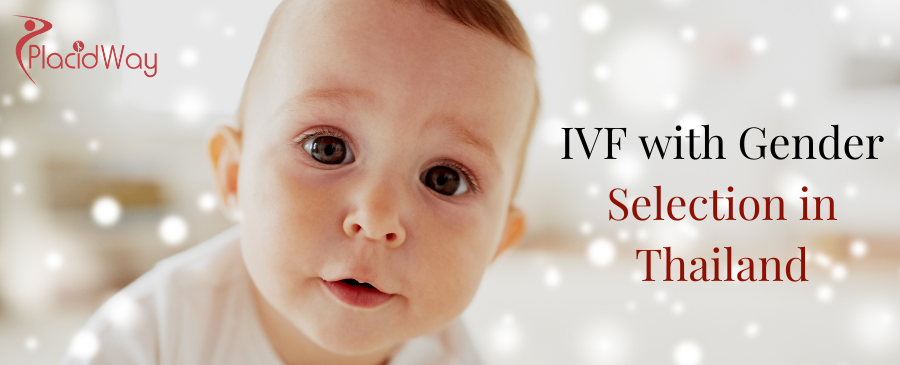
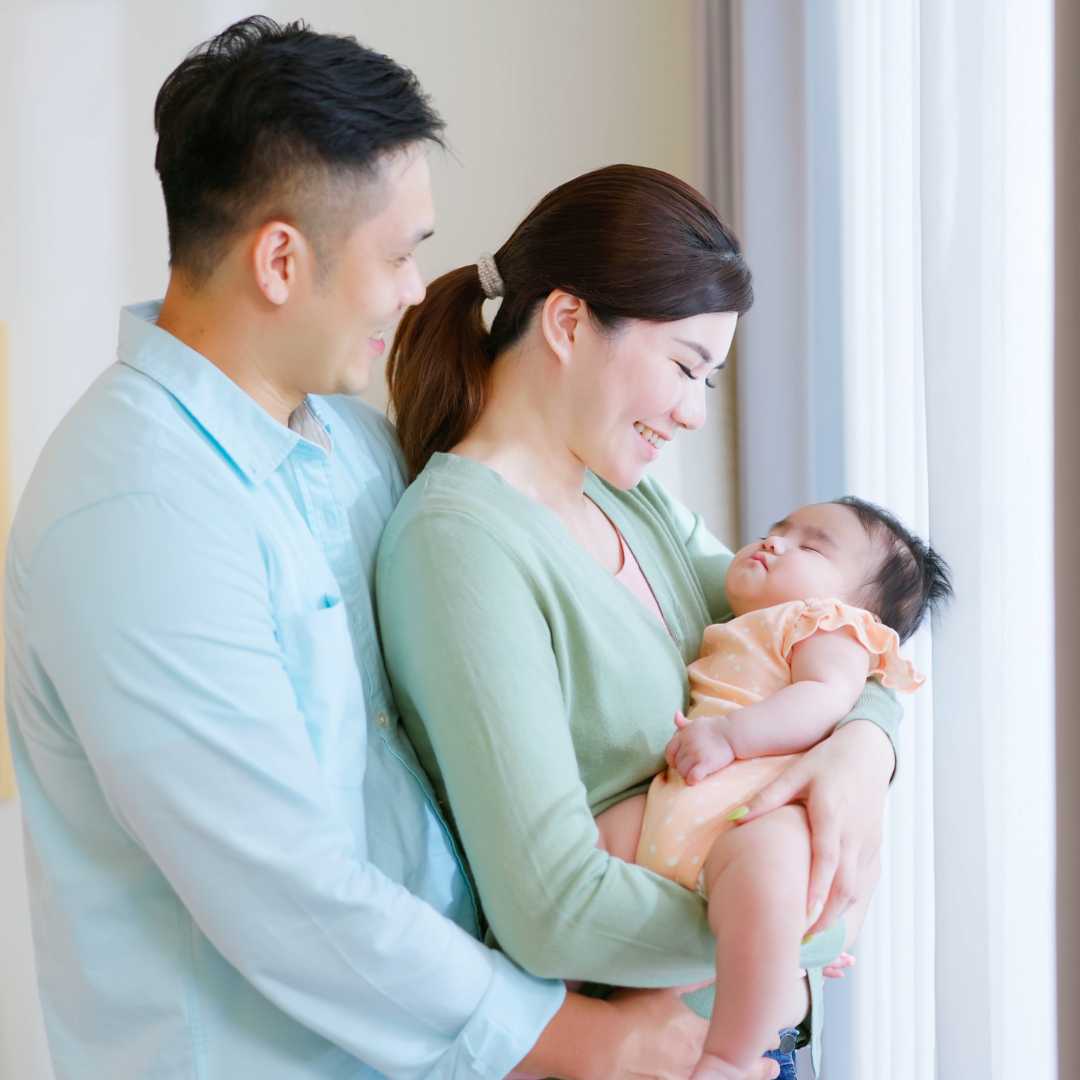

.png)
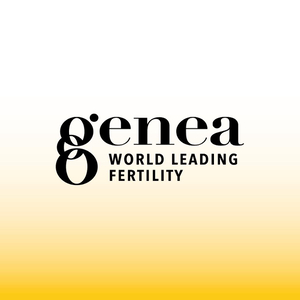
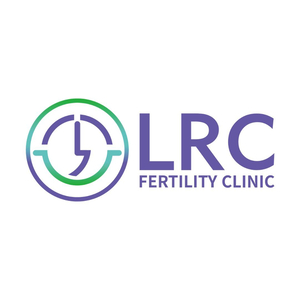










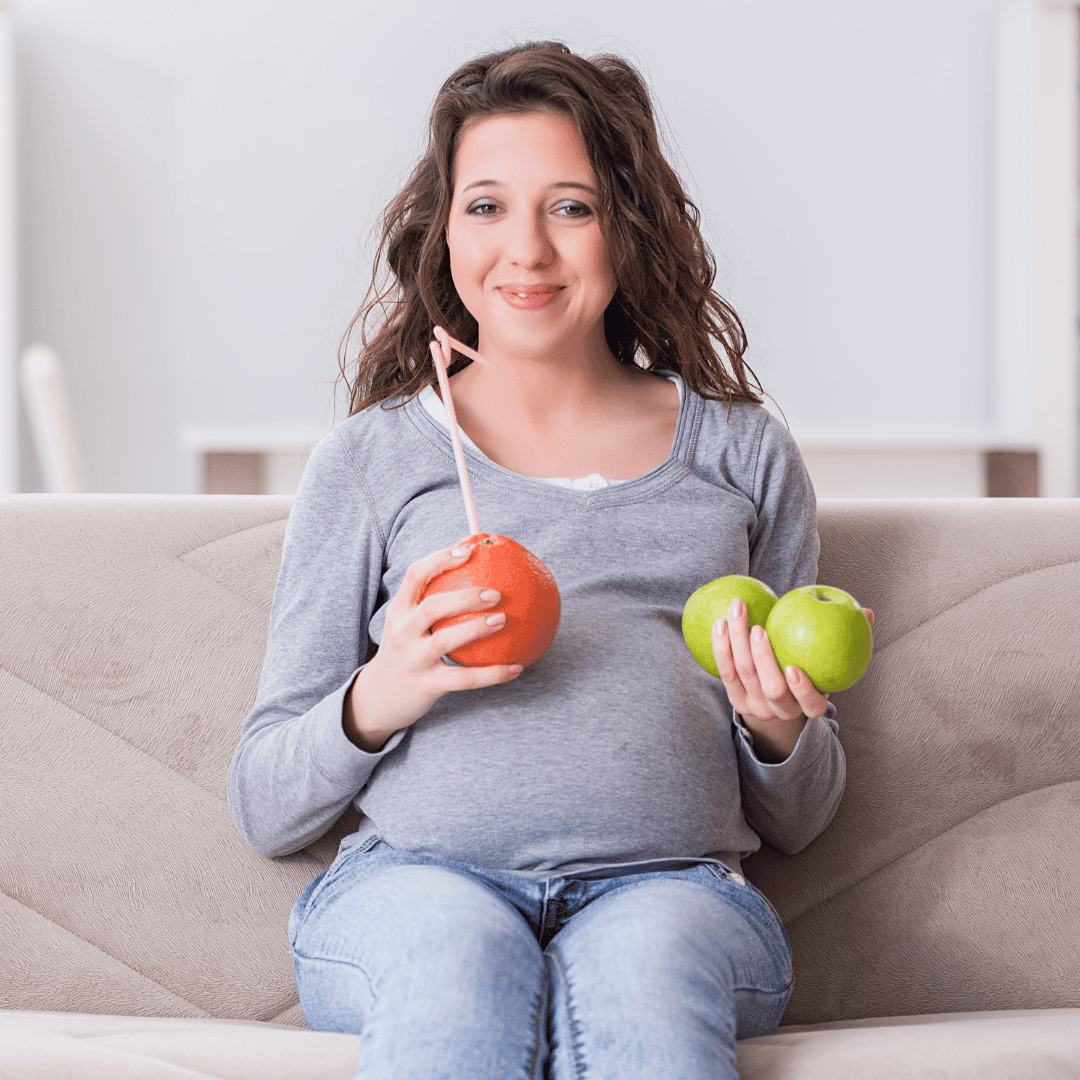

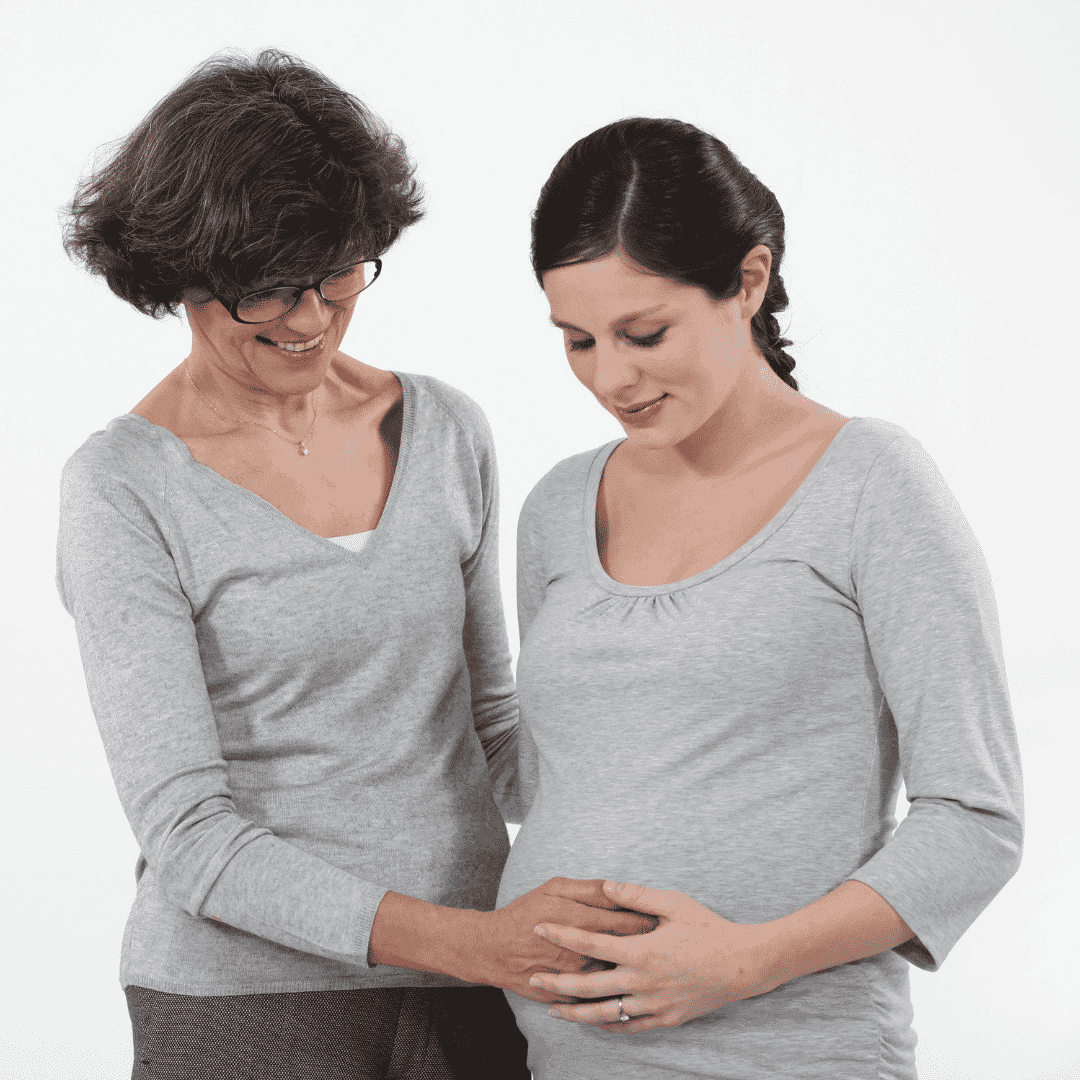
.png)
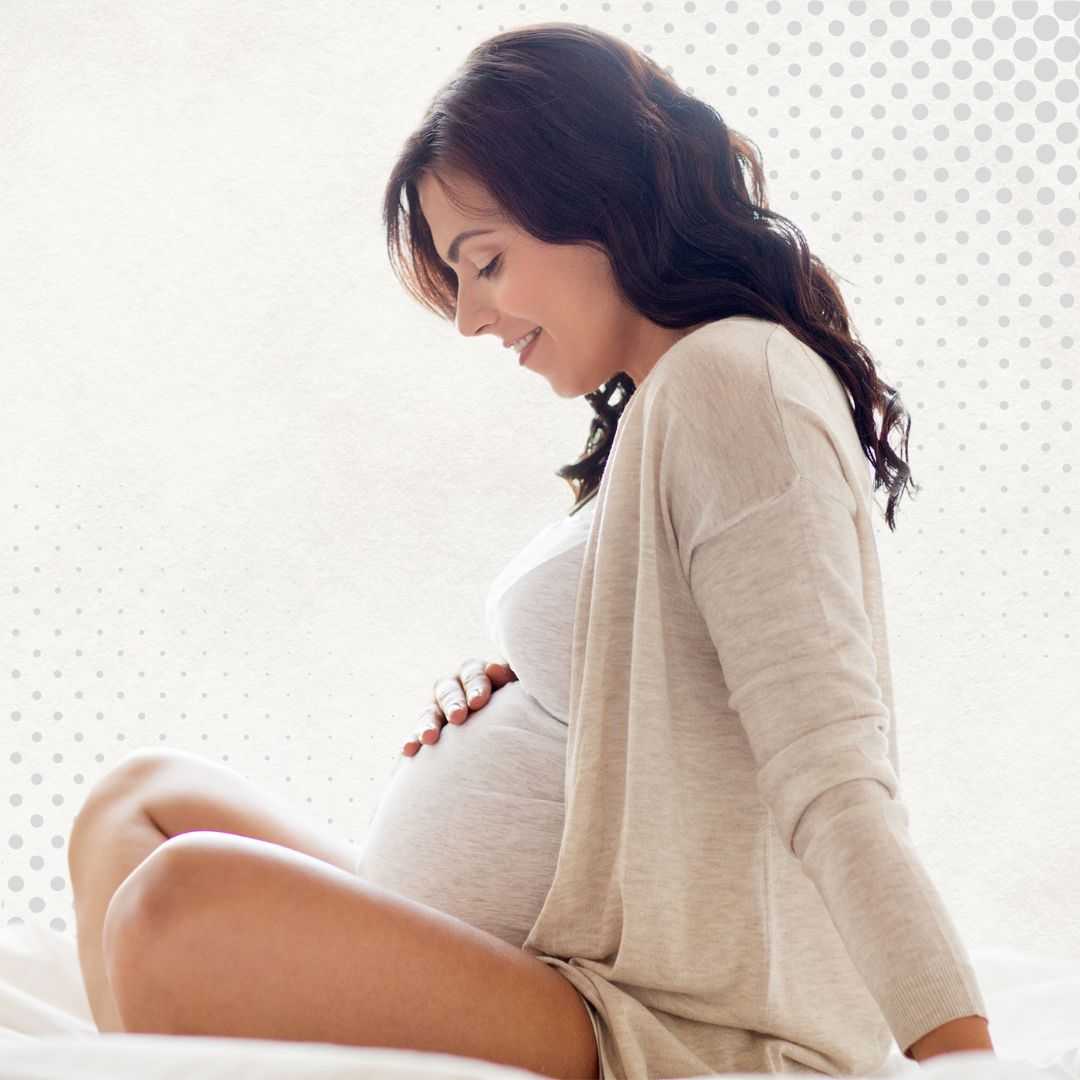
.png)
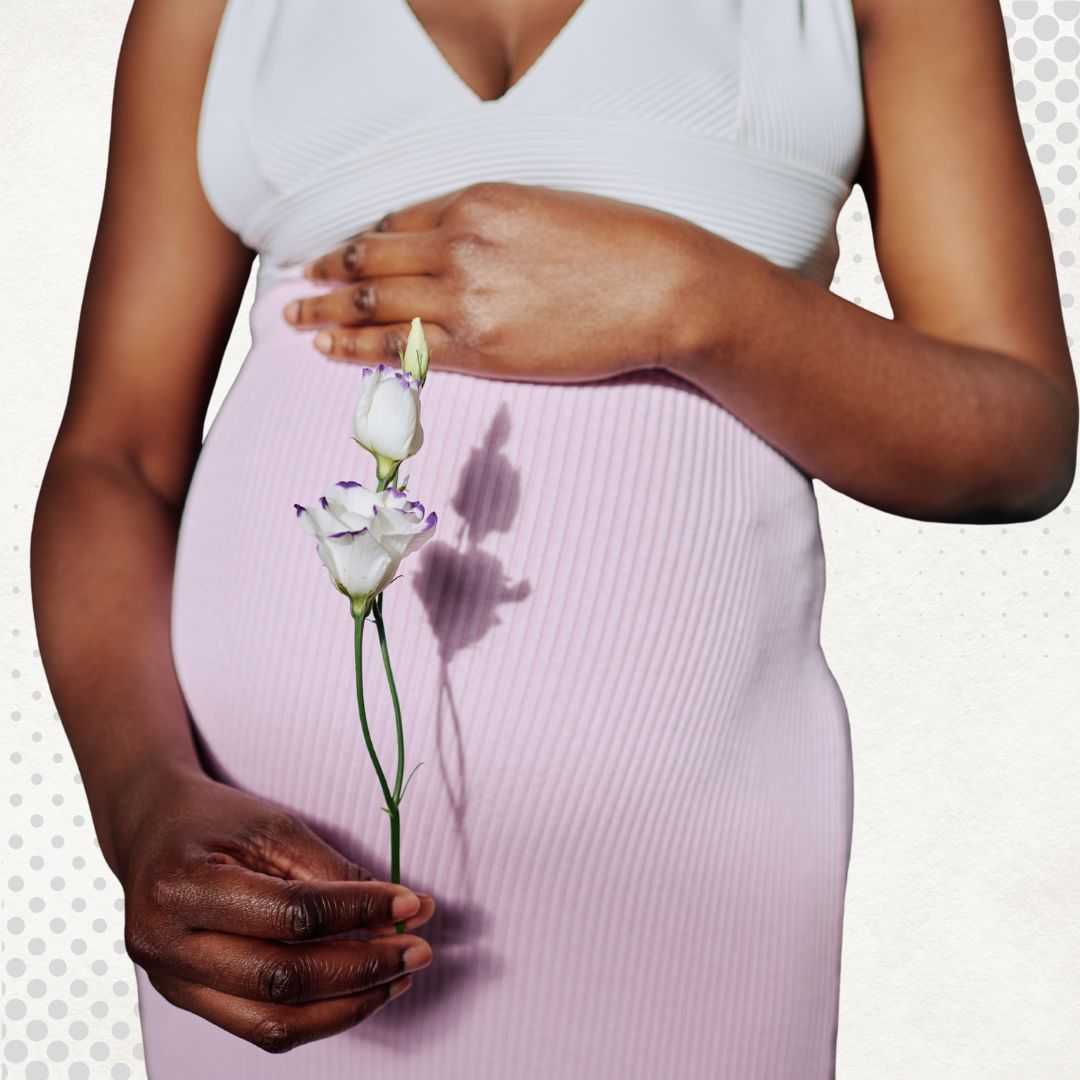
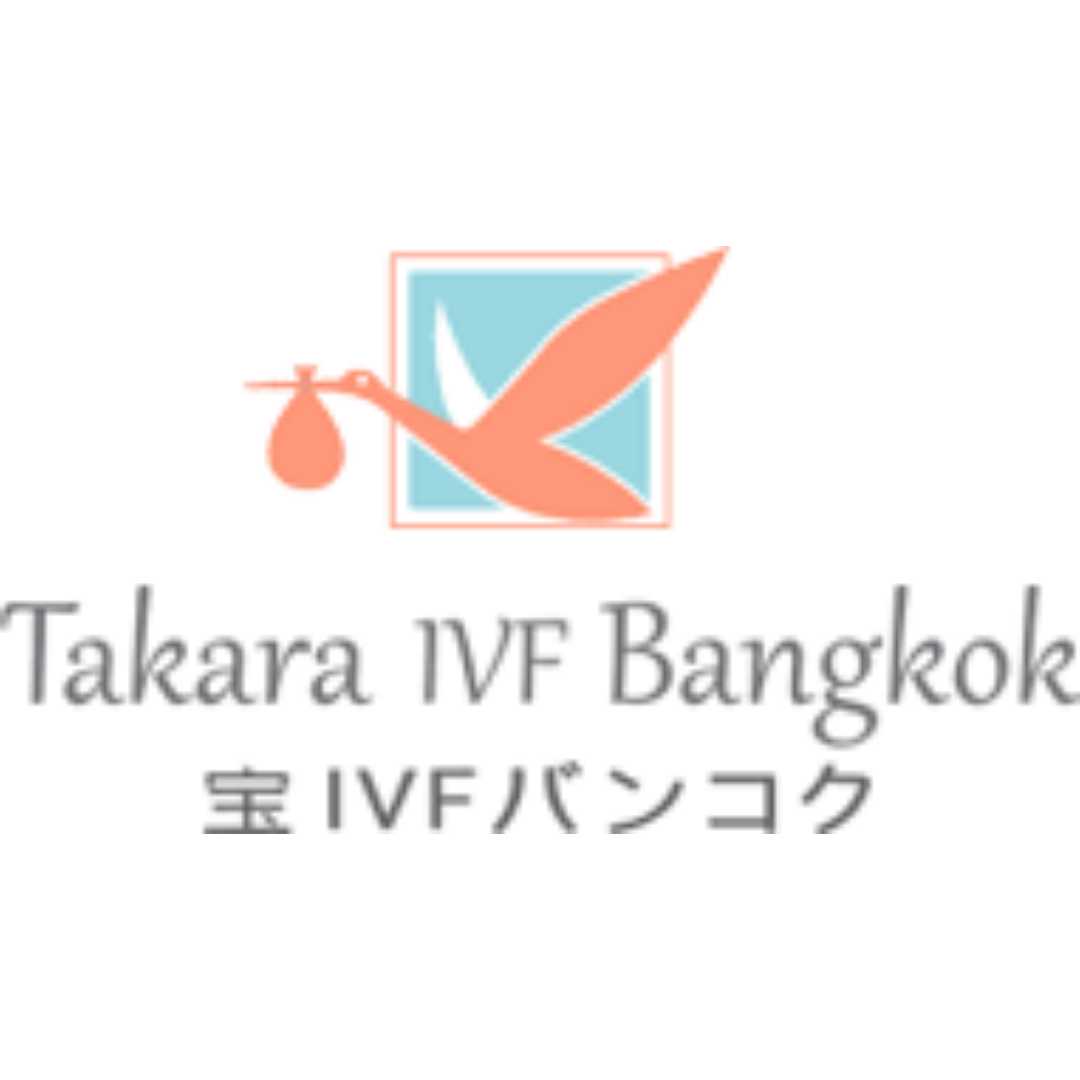
.png)
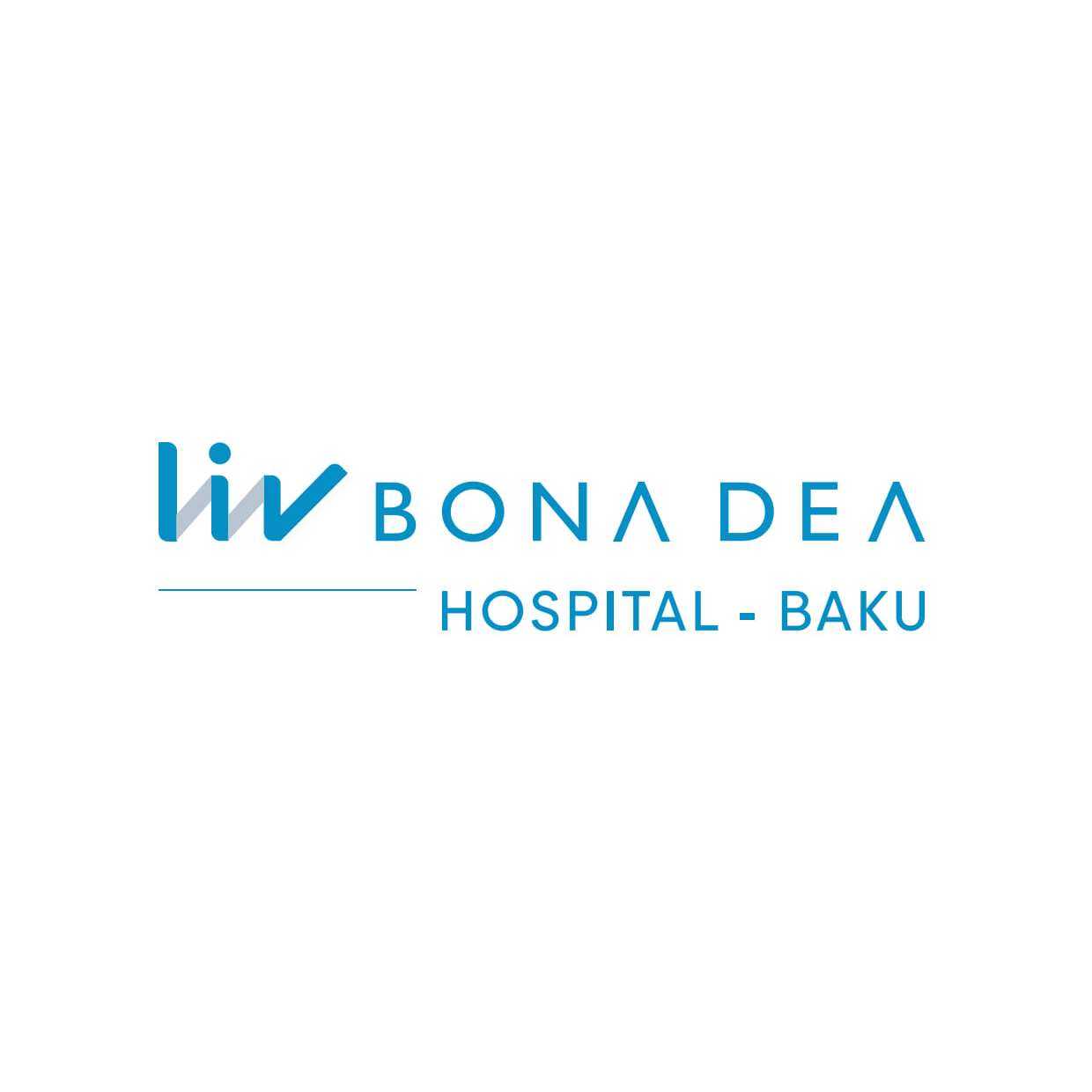



Share this listing